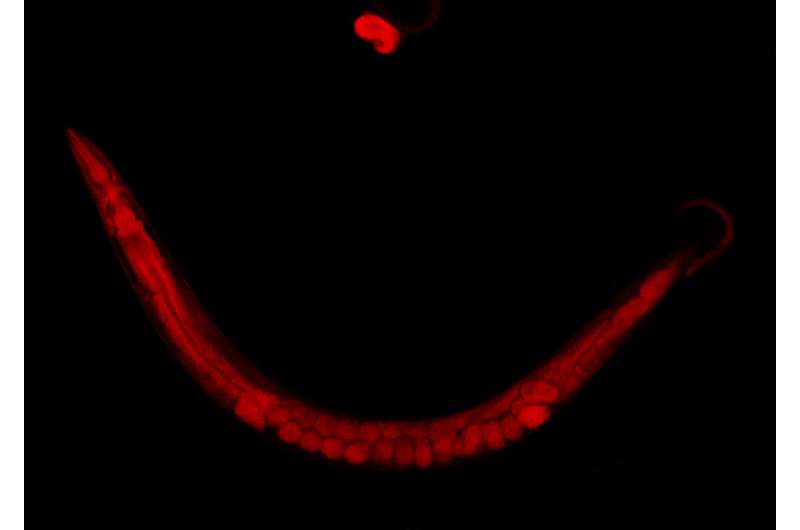Groundbreaking finding: Identification of precise fatty acid attachment to proteins by minuscule worm

22nd January 2024
The editorial staff at Science X have carefully examined this piece, paying close attention to ensure its credibility. During this review, several key characteristics were considered:
- Fact-checked
- Peer-reviewed
- Sourced from a reliable origin
- Thoroughly proofread
Verified by Boyce Thompson Institute
In the complex and often baffling world of molecular biology, recent research unveils a novel element to proteins which could have far-reaching implications for understanding and treating various human diseases.
Proteins, often compared to miniature engines powering life, necessitate alterations, termed 'protein modification', to enhance their function, location, and lifespan. A principal part of this modification is 'protein fatty acid attachment', roughly equivalent to introducing a specific component like fatty acids to allow proteins to attach to cellular membranes.
Scientists from the Boyce Thompson Institute (BTI), using high-resolution mass spectrometry, identified crucial patterns of fatty acid attachment in the C. elegans organism. This microscopic worm enables researchers to study fundamental biological operations.
The team utilized 'click chemistry', acknowledged with two Nobel Prizes in Chemistry, to map how various fatty acids modify different protein amino acids. The team's findings have been published in the Journal, Proceedings of the National Academy of Sciences.
The lead author Professor Frank Schroeder, from BTI, expressed surprise at finding different amino acids are modified with fatty acids from separate biosynthetic pathways. This discovery emphasizing the connection between protein modification and specific fat metabolic pathways provides a platform for further research into the impact of various fatty acids on protein function and their metabolism.
The study 'Amino acid and protein specificity of protein fatty acylation in C. elegans' has extensive implications for human health, as protein fatty acid attachment plays a crucial role in disorders ranging from cancer to neurodegenerative diseases, cardiovascular issues, and infectious diseases.
Bingsen Zhang, a graduate student in the Schroeder lab and the study's lead author, emphasized the importance of understanding protein modification in deciphering its pivotal role in health and disease.
Additionally, the researchers identified the first significant instance of protein modification with branched-chain fatty acids. This discovery could have parallels in humans and other higher organisms due to their prevalence in diet and gut microbiomes, potentially sparking new explorations in the field of nutritional science.
This research underlines the fundamental biological processes essential for all life forms, from microscopic worms to humans. So, when next you see a worm, appreciate its biological significance and scientists' relentless efforts in decoding its secrets. The key to life's most profound mysteries often lies in its tiniest creatures.
Additional information provided by the Boyce Thompson Institute: The study was published in Proceedings of the National Academy of Sciences.




